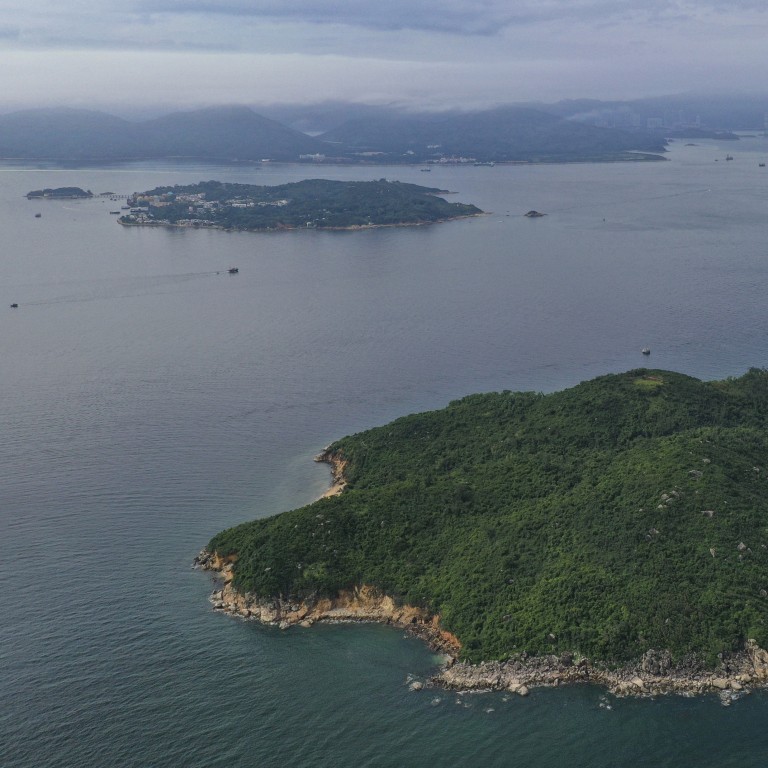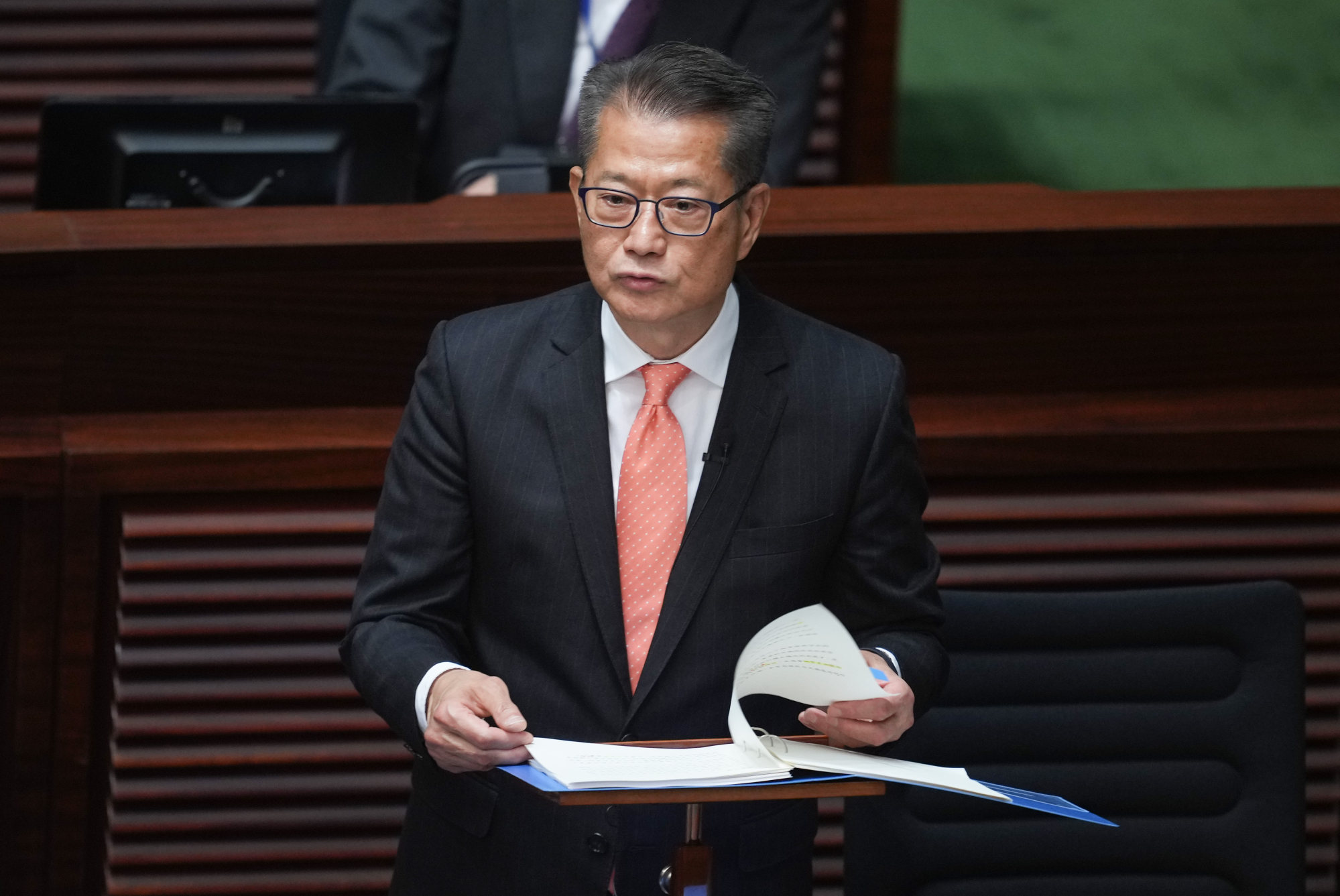
Hong Kong’s Lantau Tomorrow plan delayed by 2 to 3 years, finance chief Paul Chan says, shifting government focus to Northern Metropolis project
- Announcement of delay to artificial islands mega project made amid city’s expected fourth deficit exceeding HK$100 billion in five years
- Chan says government needs to complete feasibility studies and come up with mitigating measures for environmental impact of reclamation
“The location is very strategic in the sense that with the reclamation, we can build a bridge and railways if justified, connecting the west side of Hong Kong Island to Lantau and all the way to Hung Shui Kiu and up to mainland China,” he said on a radio show.
“This is very important in terms of logistics and spatial development.”

The finance chief said reclamation works to create artificial land masses around Kau Yi Chau, an uninhabited island off the coast of Lantau, would be delayed “slightly” by about two to three years.
He announced the length of the delay two days after revealing in his budget speech on Wednesday that reclamation would not begin next year as planned. A government insider told the Post on budget day that the project would be postponed amid the city’s expected fourth deficit exceeding HK$100 billion (US$12.8 billion) in five years.
“Over the past two years, we have received suggestions from different parties on how to put this forward, including private investment or subcontracting the whole project to private consortiums,” Chan said.
“If we go down that route, it may not cost that much in terms of government spending. But on the other hand, we want to have certain control over the land supply. We are trying to balance this and look into different options available to us.”
Chan added that the government needed to complete the feasibility studies and formulate mitigating measures for the environmental impact of creating the artificial islands.
The 1,000-hectare (2,471 acres) Lantau Tomorrow Vision project, aimed at addressing a land shortfall and expected to house a third central business district, has an estimated construction cost of HK$580 billion, with financial returns forecast at HK$750 billion.
The government plans to build up to 210,000 flats to house 550,000 people as part of the project.
The finance chief said after his budget speech that the plan would take a back seat given the “public finance position”.
The city’s expected deficit has ballooned to HK$101.6 billion, leaving fiscal reserves at HK$733.2 billion, the lowest in a decade.
Hong Kong to help finance Northern Metropolis project with land exchange scheme
Chan said the government would instead focus on the Northern Metropolis scheme, a development project near the city’s border with mainland China aiming to provide housing for 2.5 million people.
He said the Lantau project was of “lower priority” than the Northern Metropolis scheme, and that the government would rely on the issuance of infrastructure bonds worth about HK$95 billion to HK$135 billion a year to finance the development.
Secretary for Housing Winnie Ho Wing-yin said on Friday that the delay over the Kau Yi Chau reclamation would not affect the supply of flats in the coming decade, adding that plans for public homes would go ahead as planned.
“The land generated from the artificial island falls into the latter half of the 10-year plan. Only after securing the land will we start the construction of housing,” Ho said. “So all along, the supply of public housing [at Kau Yi Chau] has never been included in the 10-year plan.”
The finance chief said the government would reclaim brownfield land for public use, while private residential or commercial developers would be required to complete land exchange and site development within a specified time frame.
He pointed to brownfield sites in Fanling North and Kwu Tung North where land exchange was not completed within the stipulated period last year, prompting the government to begin taking back the sites recently.
Hong Kong to record higher-than-expected deficit as revenue shrinks: Paul Chan
“We don’t have a policy of maintaining high land value. It is our plan to continue to form more land to build a land reserve so we have a consistent and sustainable supply of land to enable our social and economic development,” Chan said.
Hong Kong’s brownfield sites are designated as agricultural land but are no longer used for farming. They are occupied instead by warehouses, workshops and recycling yards, among various other industrial activities.
Meanwhile, the housing chief echoed Chan’s remarks from Thursday that the government had not ruled out reintroducing property market cooling measures if conditions changed.
Ho said the measures, scrapped with immediate effect in Wednesday’s budget, could be reinstated as needed.
“I must stress that while the measures were cancelled, the mechanism and system are still very much in place. We can dial the tax ratio back up and we will keep a close eye on property prices,” she said.
Ho added the government had enough tools at its disposal to stimulate the market if the latest efforts were unsuccessful.


